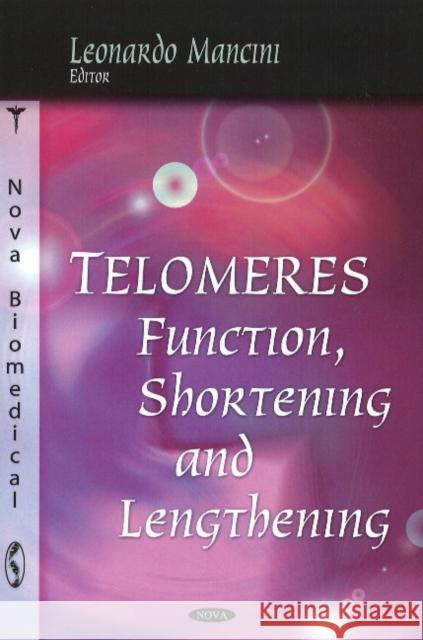Telomeres: Function, Shortening & Lengthening » książka
Telomeres: Function, Shortening & Lengthening
ISBN-13: 9781606923504 / Angielski / Twarda / 2009 / 478 str.
Telomeres are a region of repetitive DNA at the end of chromosomes, which protects the end of the chromosome from destruction. They protect chromosome ends from degradation and thus prevent chromosome end fusion. This book describes the relevance of telomeres in the human aging process and the telomere defects that play a role in the premature aging process. Dysfunctional telomeres that can promote chromosome instability, leading to DNA amplifications and terminal deletions-, cell cycle arrest and cell death, are also described. The biology and function of both telomeres and telomerase are described in this book. The possible connection between telomeres, ageing and senescence, as well as the many disorders and chronic diseases where telomere biology seems to be important are addressed, as well as future therapeutic perspectives. The importance of this enzyme in cancer is reviewed in this book. The data of various kind of cancers are discussed, in addition to the clinical application of telomere and telomerase in human cancer. The role of telomere dysfunction in apoptosis and senescence, as well as its role in newly proposed models that link telomere loss to chromosome missegregation in mitosis, are explained. Characteristic differences of telomere lengthening during oocyte and spermatozoa growth(during embryo development) is also reviewed as well as the transcriptional activity at the telomeres of Chironomus (Diptera) and its possible role in the lengthening of the telomeres. Telomere shortening in Diabetes Mellitus is also described, as well as its association with hypertension, diabetes mellitus, insulin resistance, obesity and cardiovascular mortality. The notion that alterations in the three-dimensional organization of telomeres may cause malignant transformation is also addressed.











